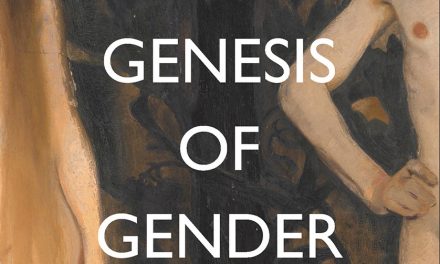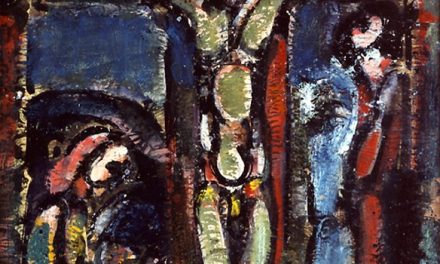Federal prosecutors have issued a subpoena to my very own Boston College, ordering the school to turn over the tapes of two interviews from two former soldiers of the Provisional Irish Republican Army, one of whom is still living, which may contain important information about the killing and disappearances of people in the 1970s who were thought to be British informants. The tapes could implicate Gerry Adams, the Sinn Fein president, who has always denied being a member of the IRA. BC is said to have granted a firm promise of confidentiality until the death of the two interviewees, Brendan Hughes (who died in 2008) and Dolours Price (still living). In the tape, Mr. Hughes is asked about the confidentiality agreement, to be used only after he dies:
“I don’t have a problem with that,” Mr. Hughes replied. “If I did have a problem with that, I wouldn’t be sitting here talking into the microphone. I think a lot of the stuff I’m saying here, I’m saying it on trust, because I have a trust in you. I have never, ever, ever admitted to being a member of the I.R.A. — never — and I’ve just done it here.”
In order to abide by the promise of confidentiality, BC may have to destroy the tapes rather than cooperate with the subpoena.
BC now faces a significant ethical dilemma. Do they have a stronger moral obligation to (a) cooperate with the subpoena and turn over the tapes or (b) uphold their promise of confidentiality to protect the interviewees? Those who argue that (b) is a stronger moral obligation point to thier concerns about the safety of the interviewers and interviewees, as well as the future of oral history projects which depend on such confidentiality promises.
Confidentiality agreements to discuss sensitive subjects, including criminal activity, are commonplace in oral history research, though often with the caveat that they are not protected from the law.
Moloney said that subjects interviewed in his project signed a written confidentiality agreement, but that it contained no clause cautioning participants that the promise might not withstand a government subpoena.
“If that had been there, we would have had no interviews at all,’’ he said. “If we were saying to them: ‘We want you to tell us everything about your life as a bomber and gunman. And, by the way, if the cops come, we’re going to hand all this over. Is that OK with you?’ It would have never gotten off the ground.’’
Moral theologian Stephen J. Pope, however, argues that (a) is stronger, and that a promise of confidentiality is “naive” and “manipulative” when regarding information that “has such grave significance for society.”
“It’s important to get legal advice on what can and can’t be promised in good faith to the interviewees,’’ Pope said. “At the very least, there is negligence on the part of the researchers, from what I can tell.’’
The two researchers who conducted the interviews, who were under Moloney’s supervision, should have known that what their subjects told them could potentially be used in court, Pope said. The law does not recognize the authority of academics and journalists to keep information confidential, he said.
It seems to me that Pope is right in this case. Despite the fact that Hughes revealed the information about his actions with the IRA under the assumption of confidentiality, it was a false assumption, one which he could have foreseen being subject to subpoena. More importantly, the tapes might reveal what happened to those who mysteriously disappeared or died during the Troubles, allowing the survivors an opportunity for closure.
Aquinas actually offers some moral guidance for a case such as this, asking “whether a man is bound to accuse.” He cites Leviticus 5:1 in the sed contra: “If any one sin, and hear the voice of one swearing, and is a witness either because he himself hath seen, or is privy to it: if he do not utter it, he shall bear his iniquity.”
In cases where the common good is at risk, a person is morally obligated to accuse the sinner of the crime, “provided he can offer sufficient proof (II-II, Q. 68, art. 1, c).” In response to the the objection that no one is bound to accuse when they have been promised to secrecy, Aquinas argues that the responsibility to the common good is stronger than the responsibility to the secret:
It is contrary to fidelity to make known secrets to the injury of a person; but not if they be revealed for the good of the community, which should always be preferred to a private good. Hence it is unlawful to receive any secret in detriment to the common good: and yet a thing is scarcely a secret when there are sufficient witnesses to prove it (II-II, Q. 68, art. 1, ad. 3).
Turning over the tapes is, I think, respecting the need for truth and justice in the maintenance of the common good. It is unfortunate that a promise of confidentiality must be broken, but in this case, it seems that the promise itself was contrary to the common good.





Beth, thanks so much for posting – I had not yet heard about this story! My first reaction is that I agree with both you and Steve. BC should turn over the tapes for all the reasons you mention.
The interesting “complication” for thought though is – should oral history research be thought of in terms of journalism? I can see the importance of maintaining the integrity of oral history research projects – but at the same time – isn’t it inherent in the purpose of oral history projects is that they are public and for the common good. Oral history research, as I understand it, is about truth telling – so for me, the question isn’t about the confidentiality agreement itself, but how do we best serve the common good and tell the truth about what happened. In this case, I do think that is through turning over the tapes; but would be interested to hear more from those engaged in oral history research.
Meghan, I agree that the nature of oral history is that they should be public and serve the common good. The primary question is whether the tapes would have even existed if the subjects of the interview weren’t guaranteed confidentiality. This has an impact on future oral history projects in which historians want to get information from living subjects that might be condemnatory in terms of the material. Forward the link to any historians you know so they can weigh in!
I think this is an easy one. The confidentiality promise by the researcher seems enormously naive. On an ethical level, coaxing information out of a person with the promise of confidentiality is materially different from a person confiding in someone for advice and asking confidence. On a legal level, with no legal privilege available to protect the recordings, they would need to be surrendered if the subpoena is properly issued — I can’t imagine BC is even remotely considering destroying the tapes because after a subpoena is issued for a document, destroying the document risks being viewed as obstruction.
I believe the release of these tapes may endanger the Irish peace process. If this assumption is true, it becomes a no brainer for me. Continuance of the peace process is paramount to what amounts to revenge. The British government has no intention of prosecuting crimes by it forces and allies in the Ulster Volunteer Force. Also, the US can lose, to a degree, some more credibility. This would manifest itself in nations and militants not trusting us when attempting to bring peace in other parts of the world. I think of the Middle East primarily.
I have no common cause with the violence perpetrated by some Irish Catholics. It is quite evident they had poorly formed consciences. On the other hand, there were members of the British forces and Protestant UVF that committed atrocities against an occupied people. I believe continuance of the peace process is a morally better option. All changes though if the interviewees are still committing crimes of violence.
Hi all. I am posting here now because of the recent ruling that determined that BC must turn over the records/transcripts of the interviews in question to British authorities. I have been thinking about this issue since the ruling (two weeks ago) and, when I googled it, your article came up! Nicely done.
Rob (an attorney) and I have been discussing this recently. Indeed, as you determine, Steve Pope explains, and others agree, there is no confidentiality protected by law in academia. Neither is there in journalism when the stakes include criminal behavior. Only the “three ancient professions” of medicine, law, and ministry are protected by law with respect to confidentiality.
On the other hand, I am extremely concerned about what this will do for research with human subjects in general. Certainly a promise of confidentiality that suggests that the material in an interview will not be used in any sort of criminal justice proceeding is naive, as has been stated above. Some of the comments suggest that it is even manipulative to get particularly delicate information from subjects. I have to raise strong concerns and disagreement here. Confidentiality agreements in the use of human subjects has facilitated research in areas of great help to many in society. Research with human subjects has led to improvements in the way cases of sexual violence are investigated and prosecuted, in the attempts at reform of the penal system and the rehabilitation of domestic violence perpetrators, among other areas. In this particular case, I am concerned that the release of this material may lead to a clamp down on studies that may be aiding situations of conflict elsewhere in the world, such as in Israel/Palestine, Sudan, etc.
While the common good dictates that criminal investigations gain access to the most accurate information, one has to wonder if access to these particular narratives is necessary for a just and fair process. The common good of U.S. society and others around the world has greatly benefited from the collective knowledge and insights garnered through research with human subjects, sometimes in matters of concern to the criminal justice system (whether on the side of perpetrators or victims), that have then been applied to improving the way society deals with negative elements and violence at many levels. In fact, common good would also have to acknowledge that research with human subjects has led to humanizing of penal and other systems where both perpetrator and victim were previously objectified and classified as incorregible. But this type of research cannot proceed without deep and explicit confidentiality agreements. While not protected by law, the academic world needs to pay close attention to this case, and society at large should insure that this ruling does not impose severe burdens on the type of work that has so greatly benefited often some of the most marginalized groups in a society.